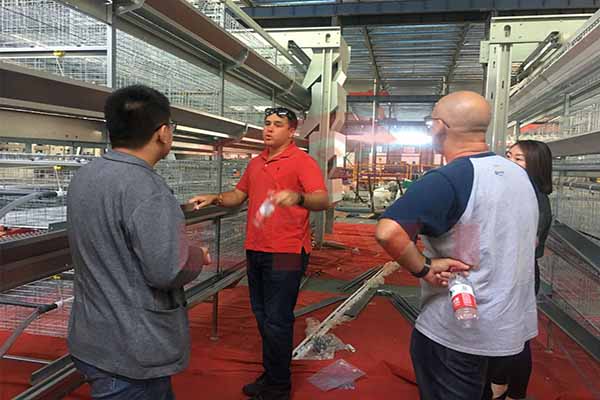Tanzanian Farmers Share Their Experience with Automated Farming Equipment
Time : 2025-06-29
Automated farming equipment has been revolutionizing the agricultural sector across the globe, and Tanzania is no exception. As the African nation continues to embrace technological advancements, farmers are increasingly adopting automated tools to enhance productivity and efficiency. In this article, we delve into the experiences of Tanzanian farmers with automated equipment, offering insights into the benefits, challenges, and future prospects of this farming revolution.
—
I. Introduction to Automated Farming Equipment in Tanzania
Automated farming equipment encompasses a range of tools and technologies designed to streamline agricultural operations. In Tanzania, these include tractors with GPS guidance, automated harvesters, and drones for crop monitoring. The integration of such technology is aimed at addressing the country’s agricultural challenges, such as land degradation, low productivity, and labor shortages.
II. Benefits of Automated Farming Equipment
2.1 Increased Productivity
Tanzanian farmers have reported significant increases in productivity since adopting automated equipment. The precision and speed of automated machines often outperform traditional methods, allowing farmers to cover more land in less time. This has led to higher crop yields and improved income generation.
2.2 Labor Efficiency
Labor is a critical resource in agriculture, and automated equipment can significantly reduce the reliance on manual labor. By automating repetitive tasks, farmers can allocate their workers to more skilled and profitable activities, thus optimizing their labor force.
2.3 Improved Crop Quality
Automated farming equipment can maintain consistent soil preparation, planting, and harvesting patterns, leading to better crop quality. The precision of automated machines ensures that crops are planted at the optimal depth and spacing, which contributes to higher yields and better resistance to pests and diseases.
III. Challenges Faced by Tanzanian Farmers
3.1 High Initial Costs
One of the primary challenges faced by Tanzanian farmers when adopting automated equipment is the high initial cost. These machines can be expensive, and without access to credit or sufficient savings, many farmers find it difficult to invest in this technology.
3.2 Lack of Training and Technical Support
The successful operation of automated equipment requires specialized knowledge and training. Many Tanzanian farmers lack the necessary skills to operate and maintain these machines, leading to inefficiencies and potential damage to the equipment.
3.3 Power Supply Issues
In rural areas, reliable power supply is often a challenge. Without a consistent energy source, farmers may not be able to operate electric or battery-powered automated equipment, limiting their utility.
IV. Case Studies: Success Stories from Tanzanian Farmers
4.1 Mr. John Mwakima’s Experience with Automated Tractors
John Mwakima, a small-scale farmer in Dar es Salaam, Tanzania, has been using an automated tractor for the past three years. He has seen a 30% increase in his maize crop yields and a reduction in his labor costs. “The tractor is very precise, and it has helped me save time and effort,” Mwakima says.
4.2 Ms. Fatuma’s Drones for Crop Monitoring
Fatuma, a coffee farmer from Mbeya, Tanzania, has been using drones to monitor her coffee plants for the past two years. “The drones help me detect diseases early, and I can take timely action to save my crop,” she explains. The drones have also allowed her to reduce her labor costs by eliminating the need for physical inspection of her coffee bushes.
V. Future Prospects for Automated Farming in Tanzania
5.1 Government Support
The Tanzanian government is taking steps to promote the adoption of automated farming equipment. Initiatives such as the Tanzania Agriculture Development Bank (TADB) are offering loans to farmers to purchase this technology. With continued support, the government aims to increase the number of farmers using automated equipment.
5.2 Private Sector Collaboration
The private sector is also playing a crucial role in promoting automated farming in Tanzania. Companies are providing training, technical support, and after-sales services, making it easier for farmers to adopt this technology.
5.3 Technological Advancements
As technology continues to evolve, we can expect to see more sophisticated and affordable automated farming equipment becoming available to Tanzanian farmers. This will further enhance productivity and efficiency in the agricultural sector.
—












